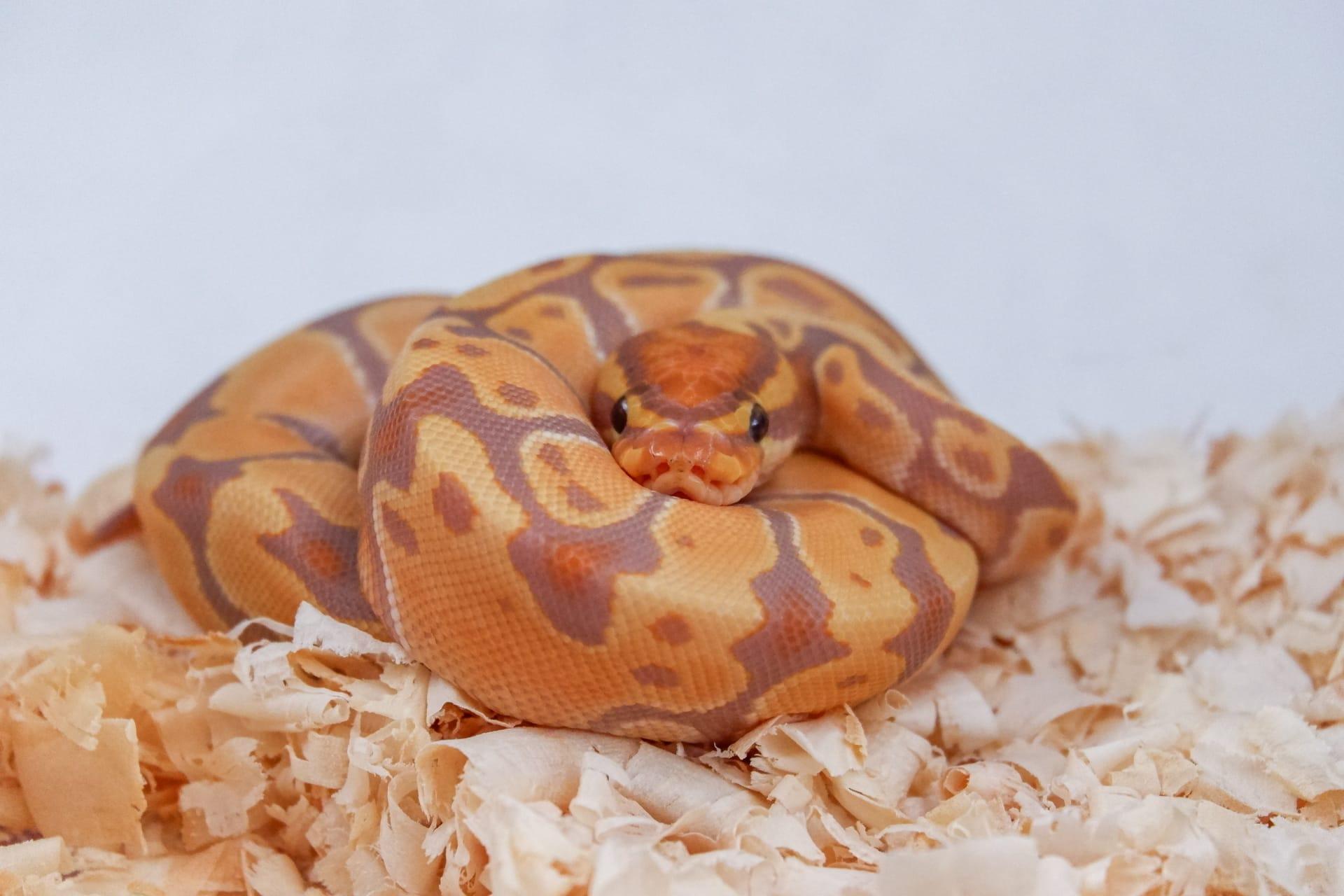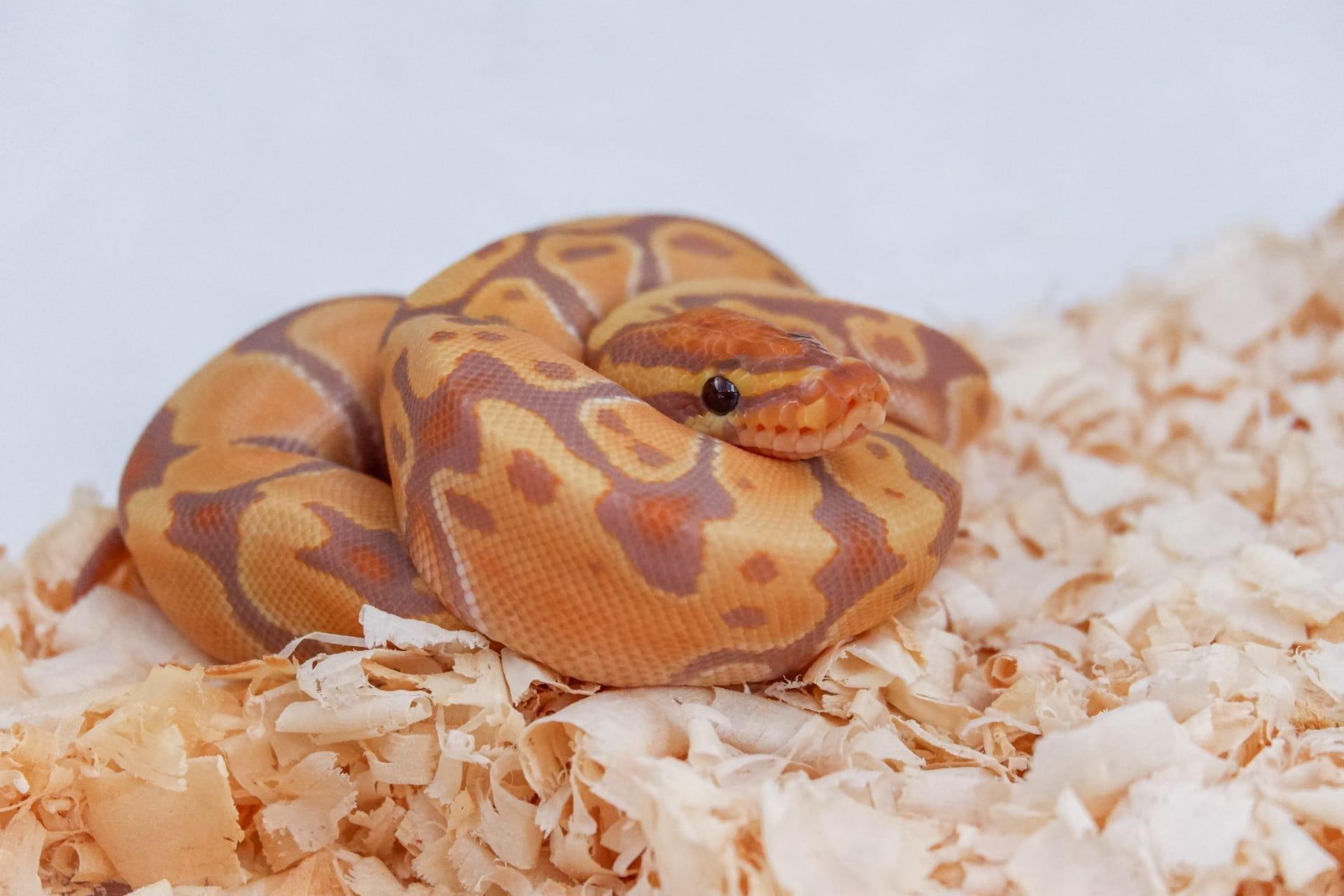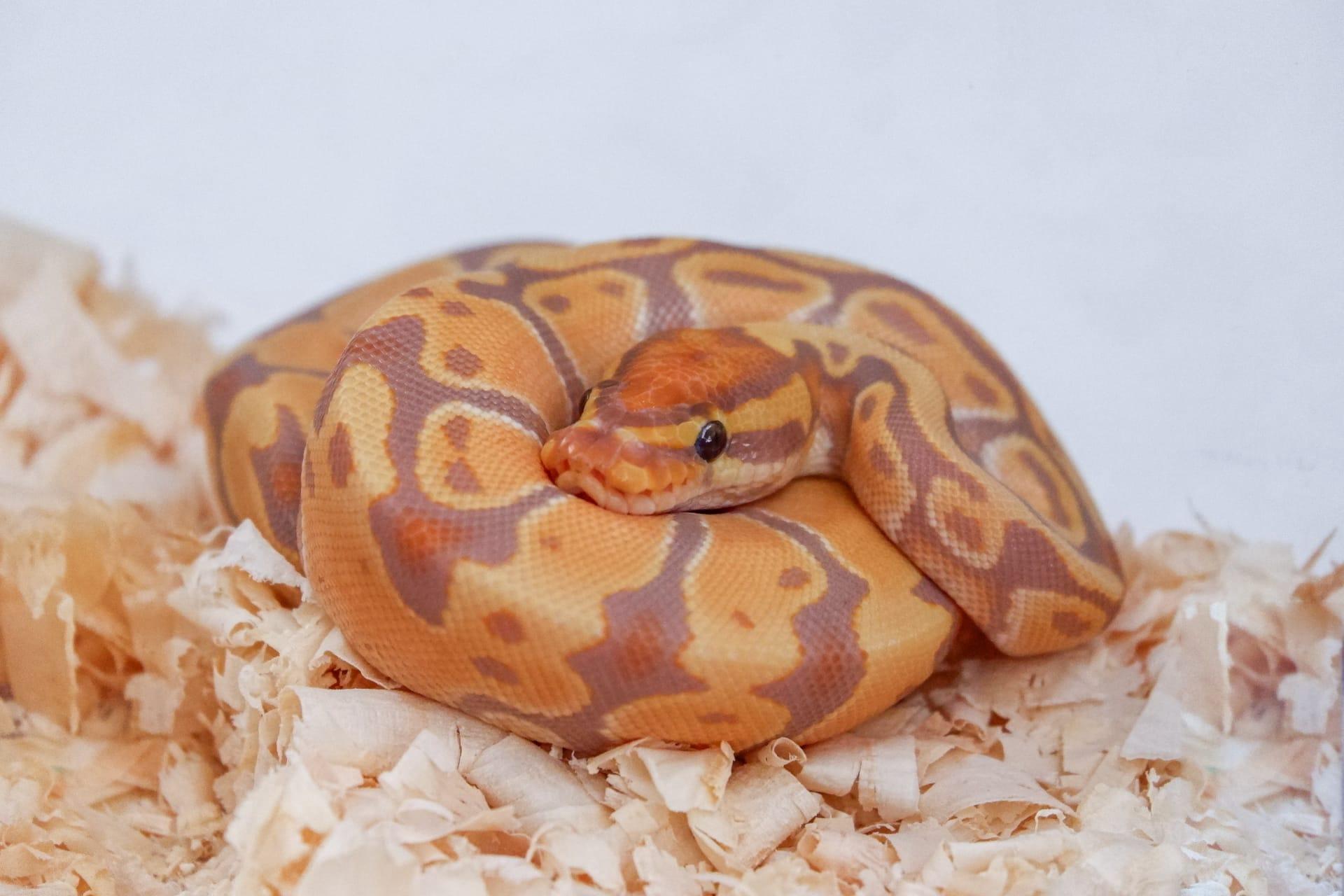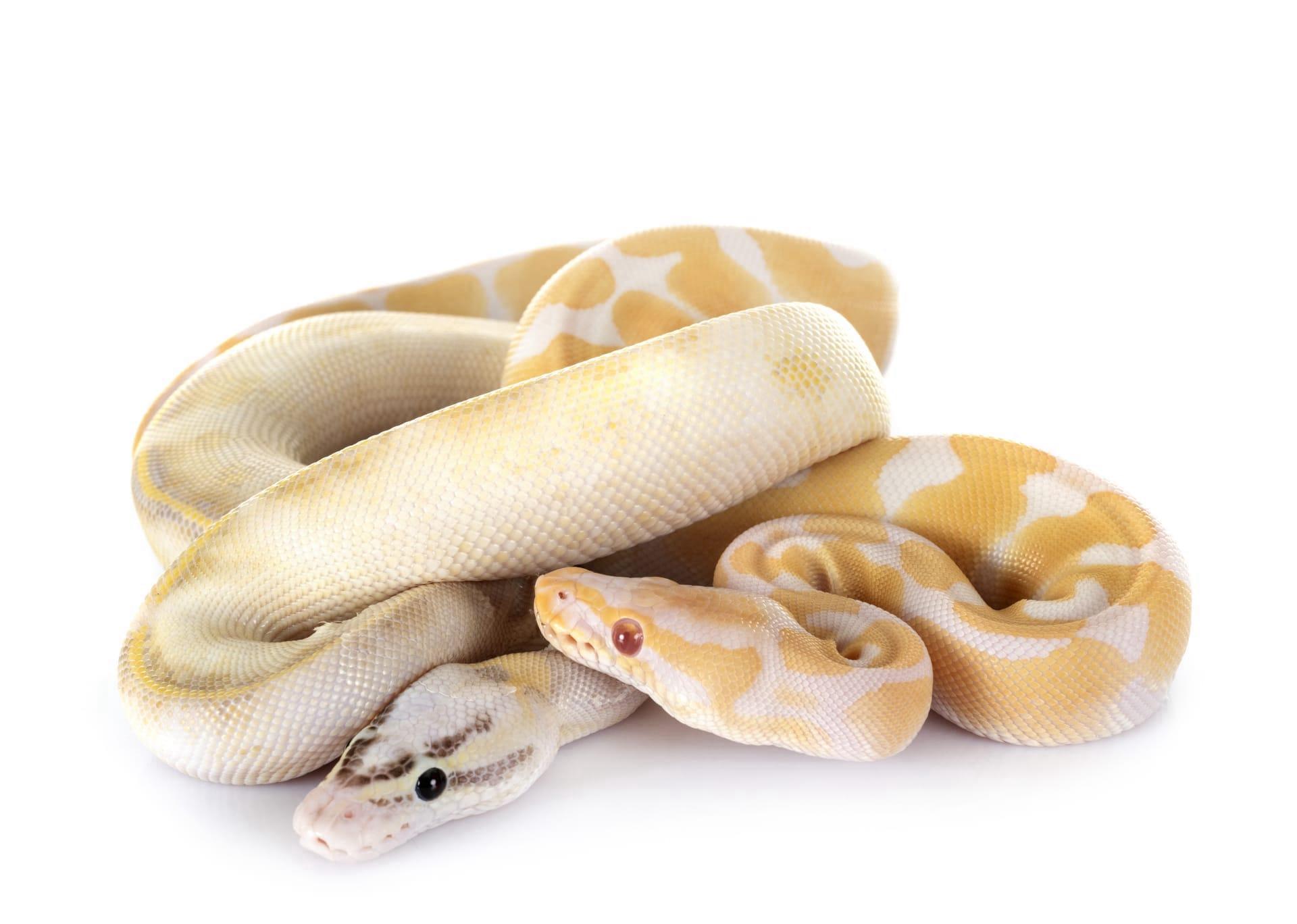Banana Ball Python
- Home /
- Mini Encyclopedia /
- Animal /
- Banana Ball Python
1
The Banana Ball Python, scientifically known as Python regius, is a non-venomous snake belonging to the family Pythonidae. This species is famous for its unique color mutations, and the "banana" variant is especially known for its vibrant yellow and black patterning that resembles the fruit. This snake is a part of the larger group of royal pythons, which are characterized by their relatively small size and calm temperament, making them popular in the pet trade.
Native to sub-Saharan Africa, Banana Ball Pythons are primarily found in countries like Ghana, Togo, and Benin. Their habitat extends to the grasslands and shrublands of this region, where they thrive in a warm and tropical environment. They are mainly terrestrial, preferring to stay on the ground, although they can occasionally be found in trees. The climate in their natural habitat is typically warm with moderate rainfall, which provides them with ample hiding spots and prey availability.

2
Question: "Is it true that Banana Ball Pythons are venomous and aggressive towards humans?"
Answer: No, this is a common misconception. Banana Ball Pythons are actually non-venomous and are known for their docile nature. They are constrictors, meaning they kill their prey by coiling around it and suffocating it, rather than using venom. These snakes are often recommended as pets for snake enthusiasts because of their manageable size, typically ranging from 4 to 6 feet in length, and their generally calm disposition. Their perceived aggression is often a result of improper handling or stress, and they are known to be more defensive than aggressive, curling into a ball when threatened – a trait that gives the Ball Python its name.

3
Banana Ball Pythons employ several survival strategies that have adapted them well to their environment. They are nocturnal, which means they are active at night. This nocturnal behavior helps them avoid the heat of the day and also makes them more effective predators, as they hunt small mammals and birds by ambushing them in the dark. Their coloring provides camouflage in their natural habitat, blending with the forest floor and underbrush.
Another key survival strategy is their slow metabolism. Banana Ball Pythons can survive on a single meal for a long time, sometimes several weeks or even months, which is beneficial in their sometimes scarce and competitive environment. During times of scarcity, their ability to regulate their metabolism and go for long periods without food is a significant advantage. They also have heat-sensing pits along their jaws, which allow them to detect warm-blooded prey in the dark, enhancing their hunting efficiency.

4
In the ecosystem, Banana Ball Pythons play a crucial role as both predators and prey. As predators, they help control the population of small mammals and birds, contributing to the balance of the ecosystem. By preying on rodents, they can indirectly aid in the control of diseases and crop damage, as many rodents are known to be pests.
On the other hand, Banana Ball Pythons are prey for larger animals, including birds of prey and large mammals. Their presence in the food chain provides a food source for these animals. Additionally, their popularity in the pet trade has inadvertently brought attention to the conservation issues in their natural habitats, highlighting the need for sustainable wildlife trade practices and habitat conservation.

5
Film: "Serpents in the Grass: The Secret World of Ball Pythons" is a documentary released in the United States in 2020. It delves into the fascinating world of Ball Pythons, with a focus on their behavior, breeding patterns, and the growing popularity of their exotic color morphs, including the Banana Ball Python. The documentary provides insights into the conservation efforts and challenges faced by these snakes in the wild and in captivity.
Book: "The Essential Guide to Ball Python Care" by Mark Smith, published in the UK in 2018, is an extensive resource for anyone interested in keeping Banana Ball Pythons as pets. The book covers a range of topics including housing, feeding, health care, and breeding, with a specific focus on the unique needs of Banana Ball Pythons.
Book: "Wild Pythons of Africa" by Dr. Emma Green, published in Australia in 2021, explores the natural habitats and behaviors of African pythons, including detailed chapters on the Banana Ball Python. It provides a comprehensive overview of their ecological role, conservation status, and the impact of human activities on their survival in the wild.